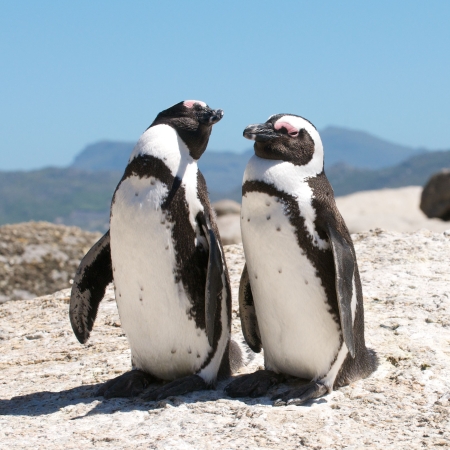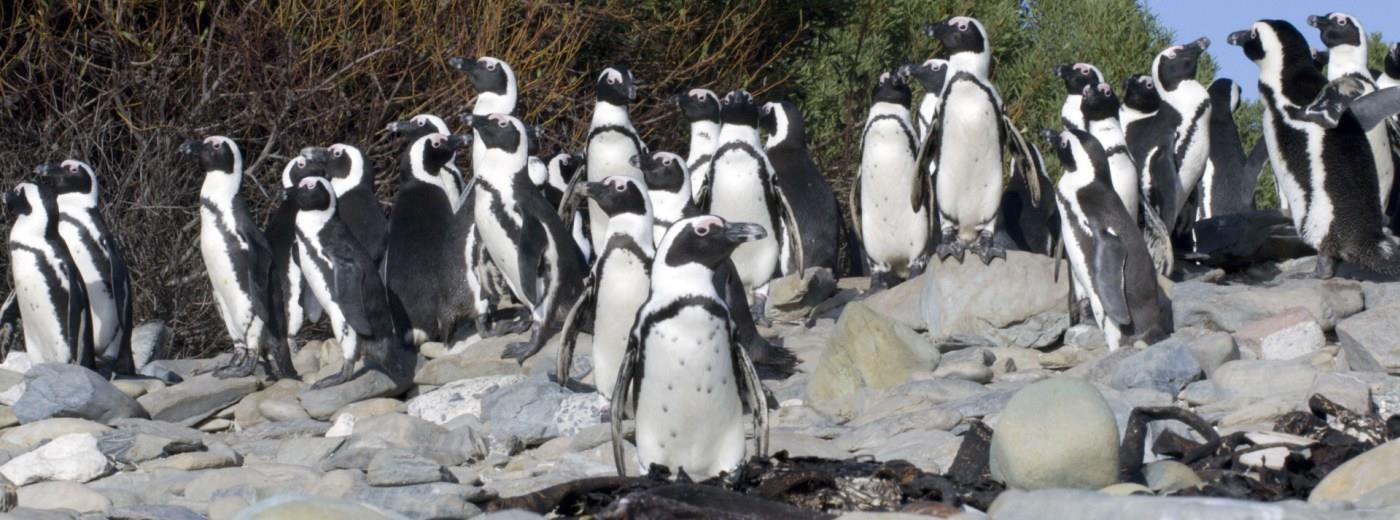Introduction
The African or jackass penguin is the only penguin species that breeds in Africa, and it is only found off the coast of South Africa and Namibia.
Also known as the blackfoot penguin, they get their name from their loud call which sounds like a donkey braying.
The males are slightly larger than the females, and have a longer bill. A fully grown adult male can be up to 60cm in height, and weigh up to 3.5kg.
They spend most of their day in the sea, and can swim at speeds up to 25km/h. Their staple diet is fish, but will also feed on squid and crustaceans.
 A Penguin's Coat
A Penguin's Coat
Their black, shiny feathers are waterproof, and they have more feathers than most other birds - about 70 feathers per square inch.
Like all other penguins, the African penguins are dual-coloured. They have a lighter colour on their belly and a darker colour on their back. This distinct colouration helps to camouflage them when they are in the water, thus hiding them from predators.
Once a year, African penguins will moult, and lose all their old feathers. It takes about 3 weeks for the new feathers to grow, and during that time they cannot swim and do not eat.
Breeding
African penguins mate for life. They make their nests by burrowing into guano or sand, or under overhanging rocks and bushes.
There is no particular breeding season, and a female will lay on average 2 eggs, using a special fold of skin which extending from the stomach to cover the eggs and keep them warm until they hatch after about 8 weeks.
The parents will take it in turns to look after the hatchlings and to catch food for the young babies, which they regurgitate.
Although only 40% of all hatchlings reach maturity, a penguin can live up to 25 years.
The African Penguin Population Today
African penguins live in colonies on 24 islands between Namibia and Port Elizabeth in South Africa.
New colonies have recently been established on the South African mainland (Boulders Beach and Betty's Bay) and in Namibia.
The largest colony is at St. Croix Island near Port Elizabeth, with about 50,000 penguins.
The total population of African penguins today is estimated to be about 120,000 birds, but this has dropped from 1.2 million over the last 70 years.
The reduction in the penguin numbers has been attributed to many things, including oil pollution, excessive egg collection, removal of guano (which penguins use to build nests) for fertilizer, and a reduction of their natural food supply by commercial fishing.

